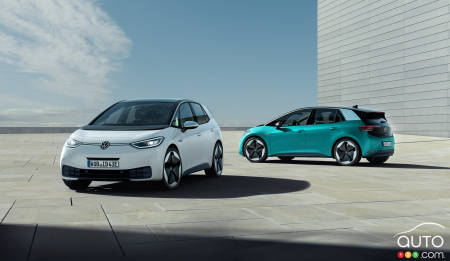It's hard not to fall for the many offers and subsidies on electric vehicles these days. But is it worth it?
Jump on your calculator:
The price of fuel at the pump has a direct impact on the demand for electric cars. As the price of gasoline rises and remains at record highs, interest in these vehicles increases. The government's electric conversion bonus also encourages this reflection and desire to switch from thermal to electric vehicles.
But it is not that simple. The price of electric cars is much higher than that of an equivalent combustion model. The difference, for the same model, between the internal combustion and electric versions is significant. In France, we are talking about 10,000€.
The question of the bonus:
Why a bonus? There is certainly a drastic desire on the part of governments to encourage drivers to switch to electric cars, but not everyone is ready or convinced of the savings they will make.
In France, a country that is a champion of incentives, several governmental aids help to absorb this price difference. The best known is the ecological bonus with a ceiling of €5,000. Only fully electric vehicles and some plug-in hybrids or hydrogen vehicles are eligible. In several regions, it is possible to benefit from additional advantages: purchase bonus, free parking, subsidies for the installation of charging stations for individuals and co-ownerships.
If you own an old gasoline vehicle registered before 2006 or diesel before 2011, you can also get a maximum conversion bonus of €5,000 depending on your income.
Not for all vehicles:
Of course, you have to keep in mind that these purchase subsidies are only valid for acquiring a less polluting vehicle. The good news is that they don't necessarily have to be new. So you can apply these incentives to new or used electric vehicles, but also to plug-in hybrids. Here are a few more details:
Electric cars with a price less than or equal to €60,000
Electric or rechargeable hybrid vehicles (no price limit)
Plug-in hybrid cars with a price less than or equal to €60,000
Thermal vehicles with CO2 emission levels below 137 g/km and priced below €50,000
Cheaper electricity:
As we know and have often heard, driving 100km with an electric car costs less than with a thermal car. But here again, everything is calculated.
Once the question of premiums is cleared up, you still have to do some calculations. The number of kilometers driven per year will have a direct impact on the logic of buying or not. If we consider only the electric car, the calculation is now easy with an average price of gasoline or diesel around 1.6 € per liter and a KW at about 0.17 €. The 100 km in thermal car will be roughly 11 € and 2,55 € for an electric car. There is no need to calculate further with these figures. But it is still possible to save on recharging.
The charging station:
It too can be subsidized. Once the installation is done, don't forget the tax credit. You can deduct part of the costs incurred for the purchase and installation of your charging station. Whether you are an owner or a tenant, you can claim the deduction by reporting the work on your income tax return.
The right time to plug in:
Last but not least, you can choose the best time to recharge your vehicle. You can plug in your car at night, when other power-hungry devices aren't normally running, or you can install a smart charging station to regulate power. If you have different needs, you can request a power increase from your utility's meter.





